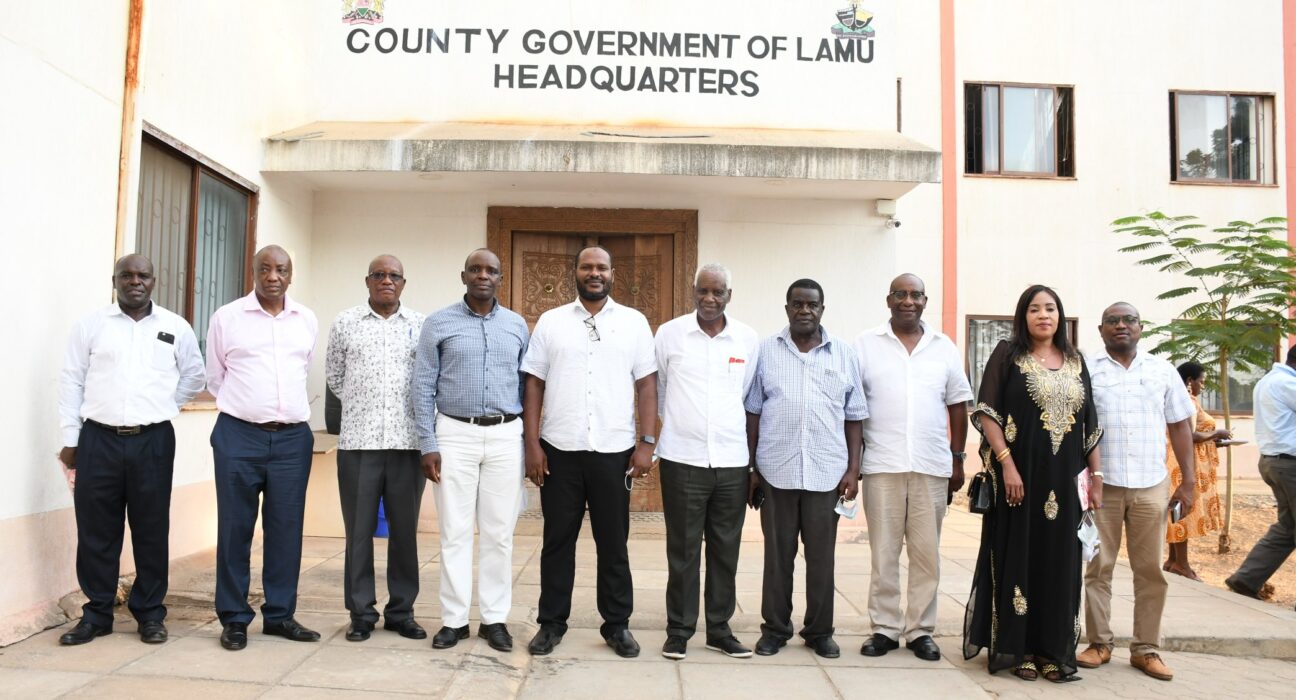Lamu County, one of Kenya’s coastal counties, is not only famous for its rich cultural heritage and beautiful beaches but also for its strategic role in the country’s economy, particularly in tourism, fisheries, and the blue economy. The county is led by Governor Issa Timamy, whose leadership has focused on fostering economic growth and improving service delivery to the people of Lamu.
The Lamu County Government operates under the devolved governance framework, where County Executive Committee (CEC) members oversee the management of key ministries and sectors. These CECs are tasked with implementing the county’s development agenda and ensuring efficient service delivery across various departments.
Lamu County Government Ministers (CECs)
Below is a list of the current Lamu County Government Ministers (CECs) who are responsible for managing critical ministries:
| Ministry | Minister (CEC) |
|---|---|
| 1. Health Services, Sanitation and Environment | Mbarak Mohamed Mbarak |
| 2. Fisheries, Blue Economy, Livestock, and Cooperative Development | Faiz Fankupi Abushiri |
| 3. Finance, Budget, Strategy, and Economic Planning | Mohamed Mbwana Ali |
| 4. Lands, Physical Planning, Urban Development, Energy, Water, Natural Resources, Infrastructure and Public Works | Tashrifa Bakari Mohammed |
| 5. Education, ICT, Gender, Youth Affairs, Sports, Community Development, and Social Services | Owanga Sabastian Aduong’a |
| 6. Tourism, Culture, Trade, and Investment | Aisha Abdalla Miraj |
| 7. Agriculture, Irrigation, and Food Security | James Gichu |
These CECs oversee the development of key sectors and ensure the county government operates efficiently, focusing on delivering essential services that improve the lives of Lamu’s residents.
Key Ministries and Their Impact on Lamu County
1. Health Services, Sanitation, and Environment:
Headed by Mbarak Mohamed Mbarak, this ministry plays a critical role in improving healthcare services across the county. It focuses on the delivery of quality medical care, the provision of clean water, sanitation, and the promotion of environmental conservation efforts. The ministry is committed to upgrading healthcare facilities and implementing public health programs to ensure residents lead healthy lives.
2. Fisheries, Blue Economy, Livestock, and Cooperative Development:
Lamu County’s strategic location along the Indian Ocean makes fisheries and the blue economy a vital sector. Under the leadership of Faiz Fankupi Abushiri, this ministry is tasked with managing the county’s fisheries and promoting sustainable marine practices. The blue economy is increasingly being recognized for its potential to boost Lamu’s economy, alongside efforts to support livestock farming and cooperative development in the region.
3. Finance, Budget, Strategy, and Economic Planning:
Mohamed Mbwana Ali leads this critical ministry, which is responsible for budgeting, financial management, and economic planning. The ministry ensures the efficient allocation of resources to priority projects, driving the county’s economic growth. Proper financial management is key to ensuring that funds are utilized effectively for development initiatives.
4. Lands, Physical Planning, Urban Development, Energy, Water, Natural Resources, Infrastructure, and Public Works:
Tashrifa Bakari Mohammed oversees this expansive ministry, which deals with land management, urban planning, and infrastructure development. The ministry is instrumental in ensuring proper land use, building sustainable urban areas, and providing energy and water services. It also oversees public works projects, which are crucial for the county’s development.
5. Education, ICT, Gender, Youth Affairs, Sports, Community Development, and Social Services:
Owanga Sabastian Aduong’a is responsible for education, gender equality, and youth empowerment initiatives in Lamu County. His ministry ensures access to quality education, vocational training, and ICT development, while also promoting gender equity and empowering the youth through sports and community development programs.
6. Tourism, Culture, Trade, and Investment:
Lamu’s tourism industry is one of the county’s major economic drivers. Aisha Abdalla Miraj is tasked with promoting the county as a premier tourism destination while fostering trade and investment opportunities. Lamu’s rich cultural heritage, including the UNESCO World Heritage site of Lamu Old Town, makes it a key focus for tourism development.
7. Agriculture, Irrigation, and Food Security:
Agriculture is a crucial part of Lamu’s economy, and James Gichu leads efforts to promote modern farming techniques, irrigation projects, and food security programs. His ministry works to ensure that residents have access to sufficient food resources while also promoting sustainable farming practices to enhance agricultural productivity.
CEC Salaries in Kenya
As is the case in other counties, Lamu County Executive Committee (CEC) members are well compensated for their work in managing the county’s vital sectors. According to a gazette notice by the Salaries and Remuneration Commission (SRC), CEC members earn a monthly salary of Ksh 404,250. This includes the following breakdown:
| Salary Component | Amount (Ksh) |
|---|---|
| Basic Salary | 242,550 |
| House Allowance | 45,000 |
| Market Adjustment | 81,700 |
| Total Salary Per Month | 404,250 |
These salaries reflect the significance of the responsibilities CEC members bear in ensuring the smooth functioning of the county government.
Lamu County Government’s Role in Economic and Social Development
Lamu County, under the leadership of Governor Issa Timamy, has made significant strides in improving the livelihoods of its residents. The county government is focused on the following areas:
- Improving Healthcare Services: By investing in health facilities, upgrading equipment, and improving sanitation, the county aims to provide better healthcare services to all residents.
- Boosting the Blue Economy: The county is actively promoting sustainable practices in the fisheries and marine sectors to enhance economic growth through the blue economy.
- Enhancing Tourism and Cultural Preservation: As a renowned cultural hub, Lamu County aims to preserve its heritage while boosting tourism through investments in infrastructure and marketing the county as a tourist destination.
- Promoting Agriculture and Food Security: With agriculture being a major sector, the county is focused on improving food security through modern irrigation techniques and sustainable farming practices.
- Infrastructure Development: Lamu County continues to prioritize infrastructure projects, including roads, water supply systems, and urban development, to foster economic growth and improve access to services.
Lamu County Government’s leadership, under Governor Issa Timamy and the dedicated team of CECs, is committed to fostering economic growth and improving the quality of life for its residents. The ministers play a key role in managing essential sectors such as healthcare, agriculture, education, and tourism, all while ensuring the sustainable development of the county. With a focus on leveraging its unique natural and cultural resources, Lamu is poised for continued progress and development.





